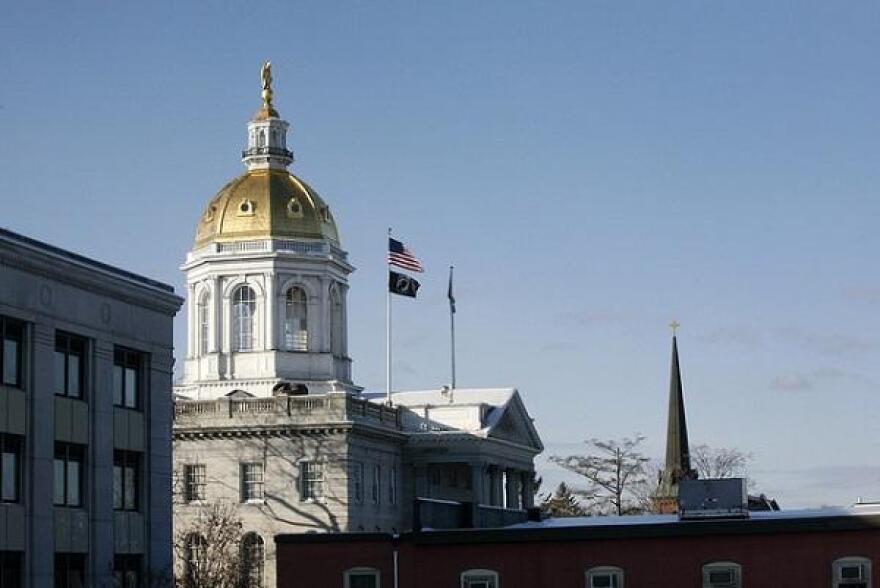A handful of late night votes on reproductive health care bills by the New Hampshire House have made reproductive rights advocates more anxious about the future of access to abortion and contraceptive services in the state.
The bills that passed Wednesday now head to the state Senate for lawmakers to debate, and it’s uncertain whether they will become law. The votes mark the latest move by Republican lawmakers to restrict access to abortion in New Hampshire this legislative session; last year, lawmakers voted, with the approval of Gov. Chris Sununu, to ban all abortions after 24 weeks, regardless of the health of the pregnant person and to mandate an ultrasound be performed before any abortion in the state. The law also imposes criminal penalties for providers who violate the 24 week ban.
Efforts to fully repeal that new law had already been paired down in various committees. But Wednesday’s session made clear that the House’s Republican leadership see little urgency in adding exceptions to the ban, like in the case of a fatal fetal anomaly. Sununu has said he’d like to see exemptions included in the new ban, which he signed into law last year as part of the state budget.
The vote to adopt an amendment to add such a provision, and remove criminal penalties for healthcare providers was close, with 165 Republicans voting against and 163 lawmakers, mostly Democrats, voting to adopt it.
But the vote, which happened late into the evening after a full day of session votes, took place with dozens of lawmakers absent from the House chamber. Lawmakers did adopt an amendment that would make ultrasounds legally required only when the fetus is close to 24 weeks old, rather than for every abortion.
Some other exceptions to the 24 week ban could still move forward in the House. HB 1609, which makes exceptions for rape, incest and fatal fetal anomalies, will soon be voted on again by the entire House.
Even prior to the current law, abortions after 22 weeks and six days were not being performed at Dartmouth Hitchcock Health, which performs the latest abortions in the state. Still, abortion advocates worry leaving the ban in place, and failing to allow for exceptions, opens the door for more restrictive laws in the future, like a ban on abortions at 16 weeks.
“It’s a ban with no purpose other than to work backwards from” said Sandra Denoncour, Executive Director of Lovering Health Center in Greenland.
Lawmakers also voted Wednesday to move forward with a bill that allows anyone working in a health care institution, from doctors to drugstore cashiers, to refuse to provide contraception, sterilization and abortion care if it violates their “conscience.” The bill also protects them from being fired for it, and would grant them broad protection from legal liability.
Federal laws and regulations already protect medical professionals, hospital employees, and others from discrimination on the basis of their conscientious beliefs.
New Hampshire would not be alone in trying to bolster federal protections through state law. Many state laws protect health care workers from adverse consequences, like lawsuits, “that may arise as a result of their conscientious refusal to participate in abortion,” according to a 2019 study in the Journal of the American Medical Association.
But Liz Canada with Planned Parenthood Northern New England says a lot of Granite Staters may not realize the extent of the bill's possible reach, because many of the arguments around it have centered on abortion, when the bill is much broader.
“The impact will be felt by people who are trying to get contraception, whether that's birth control pills, whether that's emergency contraception, or whether that's condom,” they said.
For example, if the bill were to become law, a pharmacy cashier could refuse to sell a person condoms because it violates their conscience.
Canada foresees the largest potential impact to be in rural parts of the state.
“There are just fewer places to go [for health care],” they said.
New Hampshire lawmakers also voted to move forward with a bill that would repeal the patient safety zone, or “buffer zone,” law for reproductive health centers, which gives health centers the right to keep protesters up to 25 feet away from their facilities.
The law has not been implemented so far, but with Roe v. Wade possibly set to be struck down by the U.S. Supreme Court, health centers say there may be more cause for it.
“Times change, as we’ve seen,” said Denoncour, “If we had a different tenor to the protests [already] out front, we’d enact it any time that was necessary.”
Two other abortion related bills were tabled by House lawmakers Wednesday. That includes a bill that would have banned abortions after the detection of a fetal heartbeat and one that would have enshrined access to abortion as a matter of state law.
For Denoncour, whose health center saw funding cut by New Hampshire's Executive Council earlier this winter, the votes Wednesday are a part of a larger trend and attack on reproductive health care by the state.
“I don't think we understand yet, where we will be if this trend progresses” she said.







